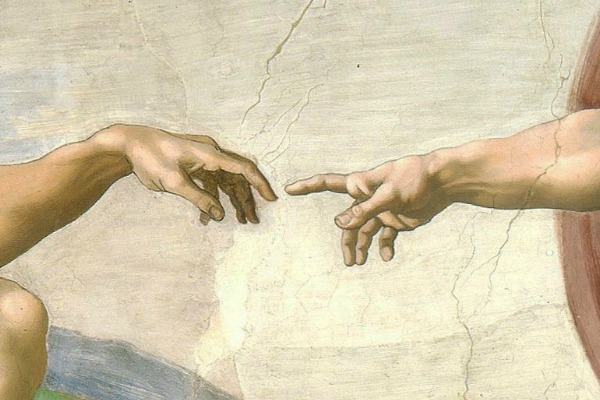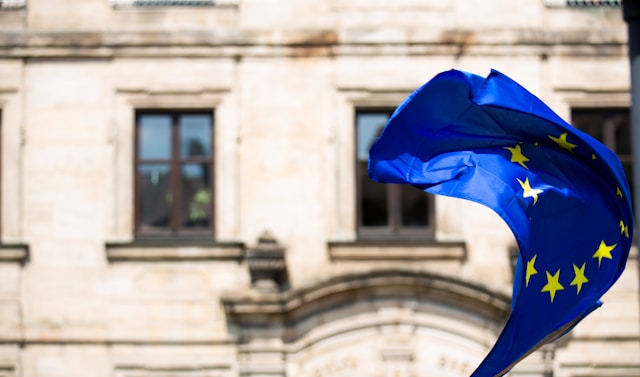
I am Kenan Çamurcu.
I was born on February 2, 1961, in İzmit (Kocaeli) into a conservative middle-class family. My father was a civil servant, a locomotive engineer at the Turkish State Railways (TCDD). I was raised in a relatively religious family environment. Despite growing up in a right-wing conservative cultural milieu, the clichés and rote learnings of that culture never influenced my life. I was always reactive to the established order.
Although I was born and raised in İzmit, I spent a few years of my childhood first in Adapazarı (1965-67) and then in Sivas (1968-70) due to my father's reassignment. I started primary school in Sivas. When we returned to İzmit, I enrolled in Seka Primary School, which was considered one of the best schools in İzmit at the time, and completed my primary education there (1970-1972).
Developments such as the military coup in 1971 and the Cyprus War in 1974 were significant events that led me to closely follow political developments. During my middle school education (1973-1975), I began to take an interest in the nationalist/idealist (Ülkücü) movement, which at that time also included religious individuals.
During my high school years (1976-1978), my brief fascination with the leftist Progressive Youth Association (İGD) ended when I heard insulting remarks about my religious-cultural habitat during meetings I attended, leading me to join the nationalist Idealist (Ülkücü) movement's struggle.
Let's remember that Ülkücülük at that time was the nationalist version of the leftists' anti-establishment stance. Genç Arkadaş (Young Friend) magazine was an example reflecting this tendency. However, the reason for the incompatibility I experienced within Ülkücülük was the movement's eagerness for violent confrontations versus my interest in thinking, reading, and writing.
Thanks to weightlifting, which I started in 1978, my desire to stay off the streets gained a strong foothold. Working in a cramped area within İzmit's indoor sports hall, I quickly became a successful weightlifter.
I remained within the Ülkücü movement until the military coup in 1980. When the military coup occurred, my friends in İzmit were being detained while I was at the national weightlifting team camp in Ankara, preparing for the European Junior Championship.
Immediately after my mother hastily removed my books, magazines, and notes, the police started coming to our house. When my mother said she didn't know where I was, they kept coming and going from the cul-de-sac where our house was located for days. I was spared from the practice of being held in prison without interrogation for three months under coup conditions, thanks to my presence at the national weightlifting team camp.
I completed my military service (1982), delayed by one year, as a Turkish national champion weightlifter in Ankara, serving with the Armed Forces Power Weightlifting Team (1981-1982).
When I returned to İzmit in 1982, I decided to deepen my knowledge of Islamic sciences. I learned Arabic on my own and read most of the Islamic classics. For a period (1983), I went to the Norşin madrasa, where the late Sadreddin Yüksel had studied. I can say that this was where I first encountered the Kurdish issue. The afternoon after I joined the madrasa in Norşin, I was sitting in a coffeehouse drinking tea when I saw groups of people ahead suddenly jump to their feet. A master sergeant, accompanied by five or six soldiers (the soldiers had their weapons in their hands), was advancing towards me, cutting through the crowd. He came and stopped directly in front of me. Everyone was standing; only I was sitting. "Stand up!" he yelled. "Why?" I asked, but understanding that something bad could happen due to his angry face and the armed soldiers, I rose indignantly, swaying. "Take him," he said. The soldiers grabbed me and took me to the police station. I was released from custody at the request of Sheikh Nurettin, Sadreddin Yüksel's brother-in-law.
When the Welfare Party (Refah Partisi) was founded in 1983, I participated in the party's activities in İzmit for a while. I wrote articles for Milli Gazete. In this context, I penned a series of articles interpreting the life and methodology of Abu Hanifa. On the days this highly acclaimed series was published, I would distribute the newspaper very early in the morning to the homes of subscribers in İzmit. The readers of the newspaper were unaware that the author of that article series was the distributor who delivered their newspapers.
In the same year, an investigation was launched against me under Article 163 due to my article titled “Egemenlik Kayıtsız Şartsız Milletin(dinin)dir” (Sovereignty Unconditionally Belongs to the Nation (Religion)), which contained a semantic analysis and was published in Milli Gazete. The investigation was dismissed without prosecution.
In 1984, I started writing for Dönüşüm, a magazine that Islamists in Turkey began to publish, headquartered in Konya.
In the same year, I organized the Palestine Rally in İzmit, considered the first mass demonstration by Islamic groups after the 1980 military coup.
I invited numerous Islamic intellectuals and scholars to İzmit and organized conferences.
For a while, I worked as a street vendor to make a living and simultaneously applied to almost all factories in Kocaeli to work as a laborer, but I received no positive responses. Consequently, in 1985, I enrolled in the Department of Persian Language and Literature at Istanbul University.
In 1985, I was part of the management (editorial board) of Girişim, a magazine published by a group of Islamist students at Istanbul University. At the same time, I was elected as a member of the committee that managed Islamic activities at Istanbul University.
In 1985 and 1986, I was on the organizing committee for the large demonstrations held in Istanbul against the headscarf ban.
During this period, an investigation was opened against me due to an interview I published in Girişim magazine. The interview was with Azad Germiyani, the president of the Kurdish Muslim Students' Association of Canada, and stated that Kurds should not be treated like "blacks" in Turkey, where Turkish-Kurdish brotherhood existed.
During the interrogation, the prosecutor asked me where I was from. "If that's what you're curious about, I'm not Kurdish," I said. "Well," he replied, "if you're not Kurdish, what's it to you, brother?" I responded, "Shouldn't we protect our brotherhood, should we become enemies? Things could get worse in the future; shouldn't we take precautions now?" The investigation was dismissed without prosecution.
In 1986, I was on the editorial board of a magazine that Socialist and Islamist writers planned to publish together. Among the founders were Haşmet Babaoğlu, Ruşen Çakır, Mehmet Metiner, and Ferhat Boratav. The magazine initiative was unsuccessful.
In 1987, after the tragedy that resulted in the deaths of 400 Iranian pilgrims, I attended the Hajj conference held in Tehran. At the conference, which hosted over a hundred invited guests from the Islamic world, I conducted interviews and expressed my impressions in many articles. As part of the invitation program, I was among the delegation that visited Khomeini in his mosque in Jamaran.
In 1987, I left Girişim magazine and participated in the establishment of Tevhid magazine. At the same time, I founded a publishing house called Akademi and started publishing thought books.
Meanwhile, I translated Ayatollah Khomeini’s important mystical work, Sırr-ı Salat (The Secret of Prayer). The book was published by Şura Yayınevi (1990).
Later, I translated Ali Shariati’s İktisat Sosyolojisi (Sociology of Economics) (Dünya Yayınları, 1991) and Murtaza Mutahhari’s book İslam İktisadının Felsefesi (The Philosophy of Islamic Economics) (İnsan Yayınları, 1992). Then I translated Allame Talagani’s commentary titled Pertevi ez Kur’an (A Ray from the Quran). The work could not be published.
During this period, I was the producer and presenter of "Platform," a weekly discussion program on Günışığı FM (1990-91). Also during the same period, I was the managing editor of Nehir, a monthly politics and thought magazine (1991-92).
Later, I became the editor for İnsan Yayınları (1992-93), which published books on philosophy, political science, and Islamic classics. I became a writer and editorial board member for the weekly news and commentary magazine Yeni Zemin (New Ground) (1992-93). After this magazine closed, I became a writer and editorial board member for the monthly thought magazine Sözleşme (Contract) (1993-94). During the same period, I was the publication coordinator for Bilgi ve Hikmet (Knowledge and Wisdom), a reputable bi-monthly social sciences journal in the intellectual world (1993-94).
In the same year (1994), I enrolled in the Master's program in Political History and International Relations at Marmara University's Institute of Middle East and Islamic Countries.
After the Welfare Party (Refah Partisi) won the Istanbul Metropolitan Municipality in the 1994 Local Elections, I took charge of a company called İstanbul Organizasyon. The company organized cultural and intellectual events for the municipality. During Erdoğan's tenure as mayor, between 1994 and 1998, we organized dozens of international meetings and events. We hosted hundreds of scholars, intellectuals, and ulema from the Islamic and Western worlds in Istanbul.
I started publishing İstanbullu (Istanbulite), a monthly city and culture magazine, for the Istanbul Metropolitan Municipality (1998-99). During this period, I also served as an honorary cultural affairs consultant for Ümraniye Municipality (2000-2001). For Ümraniye Municipality, I launched Şehir Kültürü (City Culture), a monthly city, culture, and thought magazine (2001-2002). In the same period, I became the founder and managing editor of İstanbul Günlüğü (Istanbul Daily), a monthly city newspaper (2002-2003).
In 2003, I served as the coordinator for "My City Istanbul," an urban awareness program initiated by the Istanbul Metropolitan Municipality. This comprehensive program encompassed a wide array of activities, including discussions, seminars, educational workshops, and concerts, held across universities, high schools, community coffeehouses, and cultural centers throughout Istanbul.
It represented the inaugural and sole initiative of its kind in Turkey dedicated to fostering urban consciousness, characterized by its intense, intricate, and high-paced execution. While comparable efforts addressing this theme existed in Europe, none had been realized on such a broad scale or with this magnitude. I was responsible for developing the organizational structure and training nearly fifty office personnel. The program's daily operations involved the recurring participation of over 250 artists, authors, musicians, and activists across numerous venues.
Following this role, I undertook the position of Mayoral Advisor for Pendik Municipality (2003-2004). This period was notably marked by Pendik Municipality establishing a distinguished reputation for its intellectual and cultural endeavors, both nationally within Turkey and internationally.
I served as the secretary of the Doğu Konferansı (Eastern Conference), a joint initiative of intellectuals aimed at fostering rapprochement with the East, particularly the Middle East (2004-2006). I was the producer and presenter of the "Ortadoğu Masası" (Middle East Desk) program on Skyturk TV (2005-2006).
I became an advisor to the Mayor of Samandıra Municipality (2005-2005) and an advisor to the Mayor of Beykoz Municipality (May 2005-February 2006). During this duty, I was dismissed from my job due to my articles published in the internet magazine Bilgihikmet.com. A year later, I had a heart attack and underwent bypass surgery.
In 2006, I was part of the advisory staff of the Turkuaz Movement, led by former Istanbul Metropolitan Municipality Mayor Ali Müfit Gürtuna. It was a successful and influential intellectual-political movement, but its plan for becoming a party failed. The project to enter the 2007 elections in alliance with DYP and ANAP also failed when DYP Chairman Mehmet Ağar withdrew from the alliance.
In 2009, I was part of the group that provided intellectual contributions to Numan Kurtulmuş, who was elected as the leader of the Felicity Party (Saadet Partisi). I worked on the party's Istanbul Metropolitan Municipality election campaign.
From 2007 until 2010, I wrote political analyses and thought articles on Fikritakip.com, an internet site I founded. Until the major censorship period began in 2015, I frequently appeared as a commentator on television. I gave interviews to newspapers and magazines. I attended invitations from university student clubs. I gave speeches at various events.
After the Gezi events in 2013, it became clear that I was the target of an investigation that began in 2011, following the purge of the Gülenist movement, which had clashed with Erdoğan. Gülenist police chiefs had assigned me the role of a cell leader in an organizational chart where they made Erdoğan the leader. They constructed a sixty-plus-page investigation file using my articles, press conferences and events I attended, interviews with source persons whose names I mentioned in my articles, and fabricated phone tapings.
Within the scope of the investigation, I am the only person in the country whom judges ordered over 40 times to be monitored anonymously and in every way, by linking me to three unrelated organizations (Ergenekon, Al-Qaeda, Selam-Tevhid). Had they not been purged, I would likely have started a very long prison life.
However, I never drew gratitude from Erdoğan for this. Because the Gülenists committed these evil deeds in his name and received support.
I didn't go to prison, but due to the embargo by powerful figures around Erdoğan who had received nothing but kindness and support from me, my life has been like being in prison for the past ten years. It's been a life of unemployment, poverty, and hardship.
The "Controlled Release" sentence of Muslim despotism is more than a legal matter; it's the life I've lived.
As if the treatment I faced wasn't enough, my elder daughter Meryem, a law and philosophy graduate, was rejected in mass interviews lasting less than a minute, despite passing Turkey's most difficult judge-prosecutor exam three times consecutively with high scores. Because I had anticipated this, I angrily requested old acquaintances who were AK Party MPs and executives to intervene on behalf of my daughter to prevent her from being persecuted before the interviews. I might be the only person in the country who tried to "pull strings" for his daughter, not to get her hired regardless of her qualifications and merit, but to ensure she wouldn't be persecuted, her rights wouldn't be violated, and she would receive a genuine interview exam.
Between 2018 and 2023, I served as a parliamentary advisor in the office of CHP MP Prof. Dr. Cihangir İslam at the Turkish Grand National Assembly. We went through a period of intense work, producing thousands of pages with our legislative proposals, research and inquiry motions, committee reports, and so on.
We also left a memory in the Parliament. The tree my younger daughter Zeyneb planted near the tennis court, further down from the Public Relations Building. The last time I saw it, it had reached for the sky.
In 2020, I requested the academic committee at Kocaeli University's Political Science and Public Administration department to accept me into their doctoral program. It was an eagerness to write my ongoing work, "The Structural Transformation of Publicness in Early Islam," as a doctoral thesis in academia. However, I lost my enthusiasm and abandoned it at the qualification exam stage.
After the July 15, 2016, coup attempt, it became utterly impossible for me to find employment in public administration and media within the economy of the increasingly autocratic political regime. While my retirement income was relatively useful until the beginning of the severe economic collapse, which became apparent in 2022, by 2023, my retirement pension had fallen to a level that could barely cover house rent. Therefore, after my job at the Grand National Assembly ended, and being unable to find work, I started working as a factory personnel shuttle driver in 2024. The name of the site, Trucktatus, comes from there.
"Trucktatus" is a play on the Latin word "treatise," meaning a scholarly work or an essay. It's the equivalent of the Arabic and Turkish word "tahqiq" (investigation, verification). It's a pun on the word "tractatus," which is associated with the works of Spinoza and Wittgenstein. It's adapted to my own drama.
In 2024, despite enrolling in the Master's program in the Philosophy department at Kocaeli University, I couldn't continue because I was forced to work as a shuttle driver.
In a country where polarization has become the new norm, I couldn't find a job commensurate with my over forty years of experience, qualifications, and education; therefore, I got behind the wheel to earn a living. In this situation, my philosophical endeavor, which I can't abandon even if I wanted to, inevitably becomes "philosophy at the driver's seat". That's why I usually write my articles in my mind while driving. It's a surprising twist and joke of life under the political domination of conservative despotism. The conservatives' lack of memory and their devaluation of many things have produced a dry, joyless, and humorless life. This is why unpleasantness is widespread.
Conservatives consider their unqualified, base, and tasteless worlds to be very important and impose this blandness on the entire society. Situations that would create excitement in a developed country are worthless here. It's fair to say that weightlifting in Kocaeli began with me. With my first second-place finish in Turkey in 1978, weightlifting brought Kocaeli's name to prominence. I am the city's first Turkish champion and first national weightlifter. However, years later, when I returned to my city in 2023, my request to train in the weightlifting hall, due to my eagerness to participate in masters competitions, was rejected by the person in charge there. In other words, the city's first champion and national weightlifter could not enter the city's weightlifting hall.
My academic aspirations and adventure are from the same context. In 2020, when I wanted to enroll in the doctoral program in Political Science and Public Administration at Kocaeli University, the academic staff questioned what a sixty-year-old was doing with a doctorate. My initiative, which would have been joyfully supported in a good country, was attempted to be rotted away within the fiasco of academia here. And they succeeded. I dropped out of my doctorate at the qualification exam stage.
Conservatism might be the greatest disaster to befall this country. The example in Iran is undoubtedly the most advanced case.
I am someone who, in the mid-1980s, purchased a Macintosh Plus manufactured in America, bought it in Turkey in the late '80s, and was using the internet at home when individual internet service began in 1994. I actively participated in the analog era and am now also part of the age of artificial intelligence. I have never lost confidence in my determination to resist the primitive and insipid, the tasteless and joyless, whether stemming from secular or conservative authoritarianism
Nowadays, I continue to write articles using Persian, Arabic, and English sources and live an interesting life adventure.
Starting in 1994, here are some of the many activities I conceived and managed:
- MARDİN’DE DEĞİŞİM VE GELECEK ARAYIŞI: YEREL KALKINMA, YEREL DEMOKRASİ VE SOSYAL DOKUNUN REHABİLİTASYONU (Quest for Change and Future in Mardin: Local Development, Local Democracy, and Rehabilitation of Social Fabric) / June 27-28, 2009, Mardin Municipality
- DOĞU KONFERANSI TÜRKİYE AYDINLAR BULUŞMASI (Eastern Conference Turkey Intellectuals Meeting) / October 8-10, 2004, Eastern Conference Initiative
- KAMU YÖNETİMİ REFORMU: DEMOKRATİKLEŞMENİN EŞİĞİ (Public Administration Reform: On the Threshold of Democratization) / September 11, 2004, Union of Turkish World Municipalities
- YEREL KALKINMADA BELEDİYELERİN ROLÜ SEMPOZYUMU (Symposium on the Role of Municipalities in Local Development) / January 24, 2004, Pendik Municipality
- KÜRESEL BEKLENTİLER VE TÜRK DEMOKRASİSİ SEMPOZYUMU (Symposium on Global Expectations and Turkish Democracy) / October 28, 2000, Pendik Municipality
- 2000 YILI PERSPEKTİFİ SEMPOZYUMU (2000 Year Perspective Symposium) / March 20-21, 1998, Istanbul Metropolitan Municipality
- KÜLTÜRLERARASI DİYALOG SEMPOZYUMU (Intercultural Dialogue Symposium) / March 7-8, 1998, Istanbul Metropolitan Municipality
DEMOKRASİ SEMPOZYUMU (Democracy Symposium) / December 13-14, 1997, Istanbul Metropolitan Municipality
- ULUSLARARASI DEMOKRASİ, HUKUK VE İNSAN HAKLARI KONFERANSI (International Conference on Democracy, Law, and Human Rights) / September 26-28, 1997, Diyarbakır Metropolitan Municipality
- 2010 YILININ İSTANBUL’UNA DOĞRU KENT ZİRVESİ (City Summit Towards Istanbul of 2010) / June 7-8, 1997, Istanbul Metropolitan Municipality
- ULUSLARARASI İSLAM VE MODERNİZM KONFERANSI (International Conference on Islam and Modernism) / February 22, 1997, Istanbul Metropolitan Municipality
- HABITAT II KENT ZİRVESİ - ULUSLARARASI BİLİMSEL TOPLANTILAR (Habitat II City Summit - International Scientific Meetings) / June 3-12, 1996, Istanbul Metropolitan Municipality
- İSLAM ÜLKELERİNDE DEMOKRASİ TECRÜBESİ PANELİ (Panel on Democracy Experience in Islamic Countries) / March 17, 1996, Pendik Municipality
- ULUSLARARASI İSLAM DÜŞÜNCESİ KONFERANSI (International Islamic Thought Conference) / March 15-16, 1996, Istanbul Metropolitan Municipality
- DOĞUDAN BATIDAN AYLIK BULUŞMALAR DİZİSİ (Monthly Encounters from East and West Series) / October 1995-May 1998, Istanbul
Metropolitan Municipality
Books Edited by me:
- Yerel Kalkınmada Belediyelerin Rolü (The Role of Municipalities in Local Development) (Sabancı Üniversitesi-Pendik Belediyesi, 2004)
- Avrupa Birliği ve Türkiye’de Bölgesel Yönetişim (Regional Governance in the European Union and Turkey) (Sabancı Üniversitesi-Pendik Belediyesi, 2004)
- Yerel Yönetimler Uluslararası Proje Finansman Kaynakları (International Project Financing Sources for Local Governments) (Dr. Cengiz Aktar, Pendik Belediyesi, 2004)
- Türk Dünyası Belediyeler Birliği: yeni bölgesel işbirliği imkanına doğru (Union of Turkish World Municipalities: Towards new regional cooperation opportunities) (Pendik Belediyesi, 2004)
- Yerel Yönetimler ve Spor (Local Governments and Sports) (Pendik Belediyesi, 2004)
- İstanbul Küresel Turizmin Ekseni Olabilir mi? (Can Istanbul Be the Axis of Global Tourism?) (Pendik Belediyesi, 2004)
- Pendik Yerel Kalkınma Platformu (Pendik Local Development Platform) (Pendik Belediyesi, 2004)
- İnsan Hakları 2003: Pendik değerlendirme toplantısı (Human Rights 2003: Pendik evaluation meeting) (Pendik Belediyesi, 2004)
- Demokratikleşmenin Eşiği: yerel yönetimler ve kamu reformu (The Threshold of Democratization: local governments and public reform) (Pendik Belediyesi, 2003)
- AB Üyelik Sürecinde Merkeziyetçilikten Yerelleşmeye (From Centralization to Decentralization in the EU Accession Process) (Pendik Belediyesi, 2003)
- Küresel Şehirler Yarışında İstanbul (Istanbul in the Race of Global Cities) (Pendik Belediyesi, 2003)
- İnsan Hakları Duyarlılığı Oluşturmada Yerel Yönetimlerin Rolü (The Role of Local Governments in Fostering Human Rights Awareness) (Pendik Belediyesi, 2003)
- İstanbul’da Birlikte Yaşama Tecrübesi (The Experience of Living Together in Istanbul) (Pendik Belediyesi, 2003)
- Finansın Küresel Dolaşımı ve İstanbul (Global Flow of Finance and Istanbul) (Pendik Belediyesi, 2003)
- Dini Bilginin Evrimi: Abdulkerim Suruş ve fikirleri (The Evolution of Religious Knowledge: Abdolkarim Soroush and his ideas) (Pendik Belediyesi, 1995)
My Authored Works:
- Ortadünya Jeopolitiğinde Uyanış: Kapitokrasinin bahar kampanyasına rağmen ümmi isyanların kimliği (Awakening in Middle-Earth Geopolitics: The Identity of Illiterate Uprisings Despite the Spring Campaign of Capitocracy) (Feta Yayıncılık, 2013)
- Asimetrik Vakalarda Kıble Tayini: Muhafazakar yeni Türkiye'de yön bulma kılavuzu (Determining the Qibla in Asymmetrical Cases: A Guide to Orientation in Conservative New Turkey) (Destek Yayınları, 2012)
- Can Havliyle Düşünceler (Thoughts in a Desperate Effort) (Şehir Yayınları, 2006)
- AK Parti’nin Stra-trajik Meseleleri (AK Party's Stra-tragic Issues) (Şehir Yayınları, 2005)
- Firuze Köprüde Üçüncü Cumhuriyet: Velayet demokrasisinden demokratik cumhuriyete İran (The Third Republic on the Turquoise Bridge: Iran from Guardianship Democracy to Democratic Republic) (Şehir Yayınları, 2000)
My Translations:
- Seyrü Süluk (Journey of the Seeker) (el-Mustafa Yayınları, 2024)
- Yeni Kelam / Edisyon (New Theology / Edition) (el-Mustafa Yayınları, 2017)
- Velâyette Tevhid Ya da Dinin Cevheri (Unity in Guardianship or the Essence of Religion) (el-Mustafa Yayınları, 2017)
- Kur'an İlimleri Metodolojisi (Methodology of Quranic Sciences) (el-Mustafa Yayınları, 2015)
- Ali Şeriati'den Vecizeler / Derleyen: Muhsin Nîkbaht (Aphorisms from Ali Shariati / Compiled by Muhsin Nîkbaht) (Önsöz Yayıncılık, 2014)
- Hadisi Anlama Metodolojisi (Methodology for Understanding Hadith) (el-Mustafa Yayınları, 2014)
- Ruhsal Hijyen (edisyon) (Spiritual Hygiene (Edition)) (el-Mustafa Yayınları, 2013)
- Tefsir Ekolleri (3 cilt) / Ali Ekber Bâbâî (Schools of Exegesis (3 volumes) / Ali Ekber Bâbâî) (el-Mustafa Üniversitesi Türkiye Temsilciliği, 2012-2013)
- Ammar b. Yasir (Ammar ibn Yasir) (Feta Yayıncılık, 2013)
- Kur'an Dilinin Analizi ve Kur'an'ı Anlama Metodolojisi / Muhammed Bâkır Saidirûşen (Analysis of Quranic Language and Methodology for Understanding the Quran / Muhammad Baqir Saidiroushan) (el-Mustafa Üniversitesi Türkiye Temsilciliği, 2012-2012)
- Muhtelif Eserler / Ali Şeriati (Various Works / Ali Shariati) (Fecr Yayınları, 2012)
- Dünyagörüşü ve İdeoloji /Ali Şeriati (Worldview and Ideology / Ali Shariati) (Fecr Yayınları, 2011)
- Tevhid Risaleleri / Seyyid Muhammed Hüseyin Tabatabai (Treatises on Monotheism / Sayyid Muhammad Husayn Tabatabai) (İnsan Yayınları, 2010)
- Kalender ve Kale: Sühreverdi'nin hayat hikayesi / Seyyid Yahya Yesribi (The Qalandar and the Castle: The Life Story of Suhrawardi / Sayyid Yahya Yasribi) (İnsan Yayınları, 2010)
- İrfan Felsefesi / Seyyid Yahya Yesribi (Philosophy of Irfan / Sayyid Yahya Yasribi) (İnsan Yayınları, 2010)
- İslam İktisadının Felsefesi / M. Mutahhari (The Philosophy of Islamic Economics / M. Mutahhari) (İnsan Yayınları, 1992)
- İktisat Sosyolojisi / A. Şeriati (Sociology of Economics / A. Shariati) (Dünya Yayınları, 1991)
Translated by Gemini




